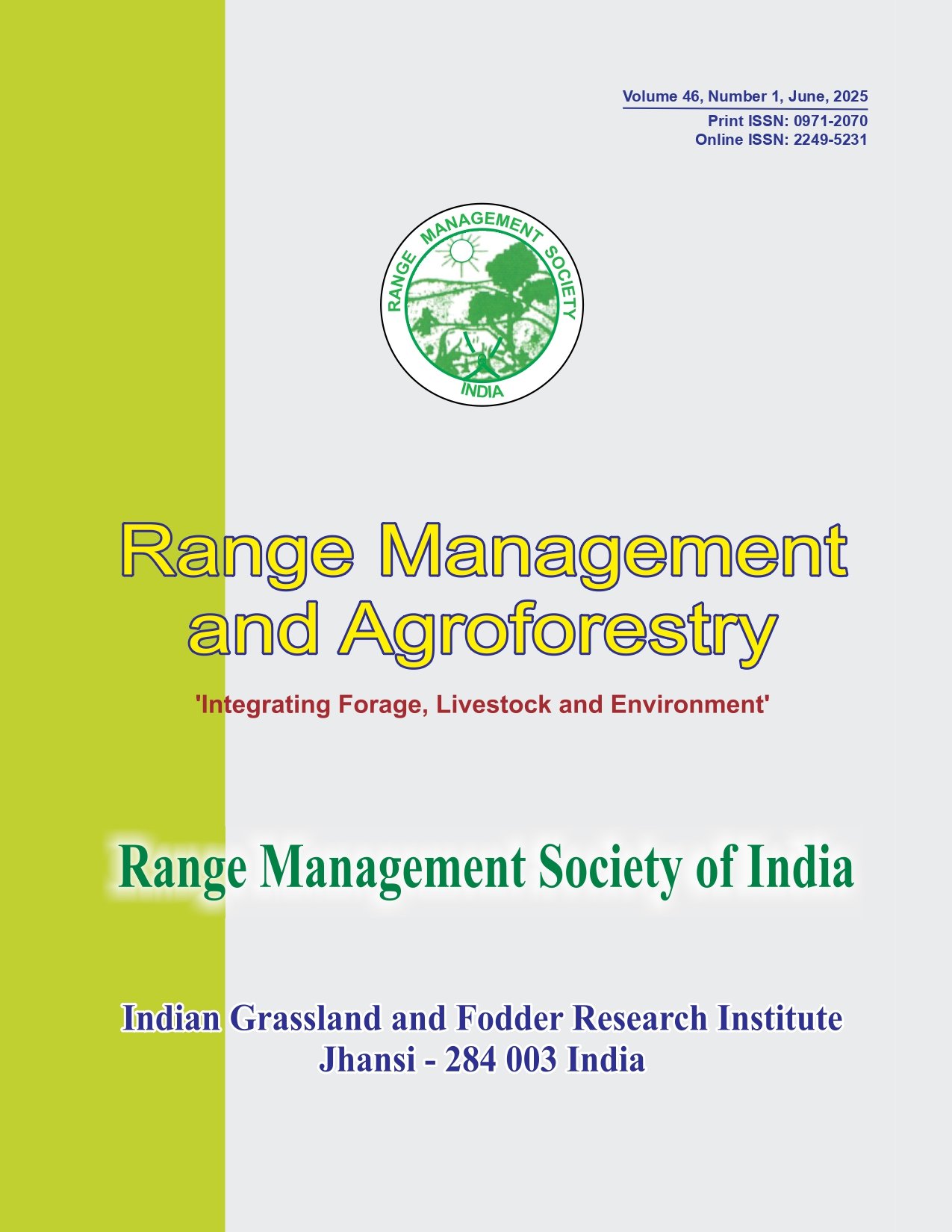Genetic variability, correlation and cluster analysis of sub-tropical maize inbreds for morphological characteristics and kernel micronutrient contents
Abstract
In the present study, forty eight sub-tropical maize inbreds were analyzed for grain yield and yield attributing traits along with micronutrients content. Genotypic differences were significant among the maize inbreds for all the traits under study. Kernel Fe concentration ranged from 14.23 to 38.08 mg/kg, while kernel Zn concentration varied from 11.61 to 39.41 mg/kg. Kernel copper (Cu) and manganese (Mn) content ranged from 1.34 to 4.31 mg/kg and 2.05 to 9.83 mg/kg, respectively. Significant positive correlation was observed among the kernel Fe, Zn, Cu and Mn, indicating the possibility of their simultaneous improvement. For kernel Fe concentration, GWL28 (38.08 mg/kg) and CML296 (33.78 mg/kg) were found to be the best genotypes. In case of Zn content, GWL28 (39.41 mg/kg) and GYL10 (35.41 mg/kg) were the best inbreds. Genetic diversity based on all the four micronutrients grouped 48 inbreds into five major clusters. The highest genetic dissimilarity was observed between CM133 and CML251, while CML251 and CML293 showed the lowest dissimilarity. Rank summation index identified CML296, GYL1 and CML269 as first three best inbreds for kernel micronutrients content and grain yield. The promising inbreds identified here would be useful for developing biofortified maize hybrids enriched with micronutrients.




